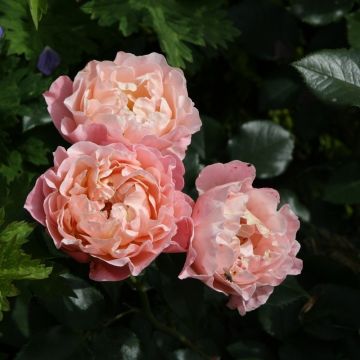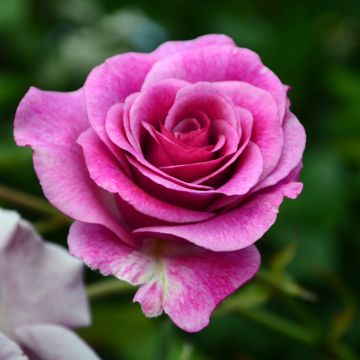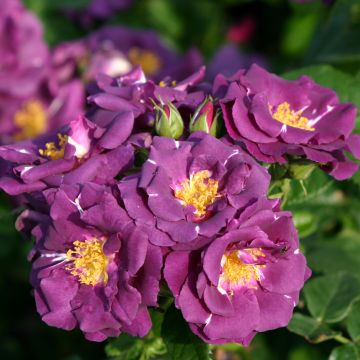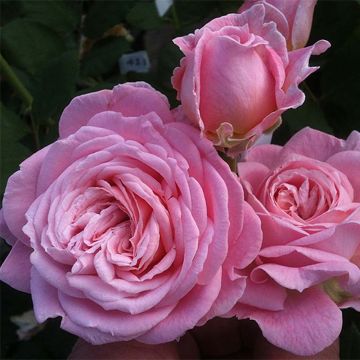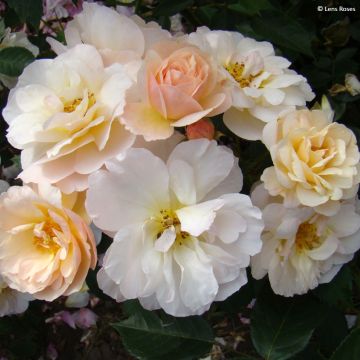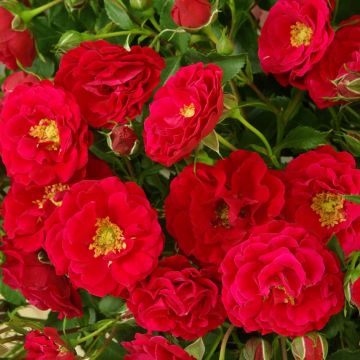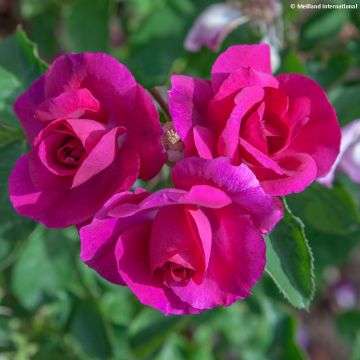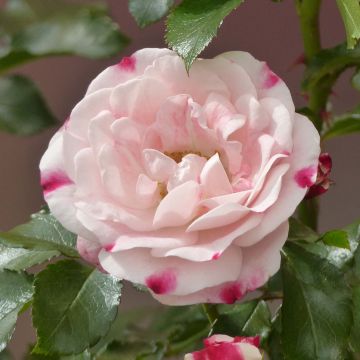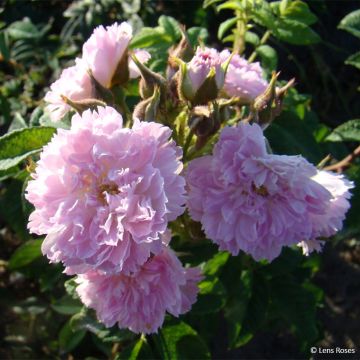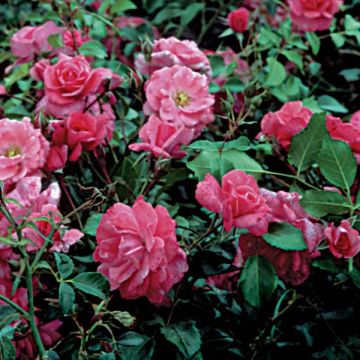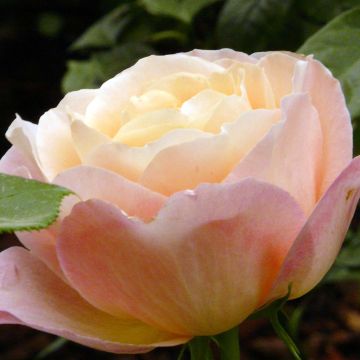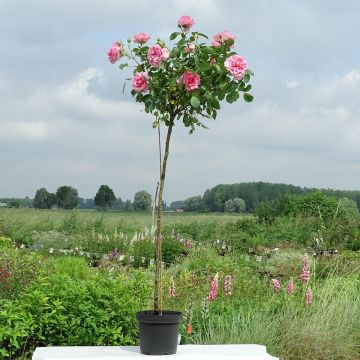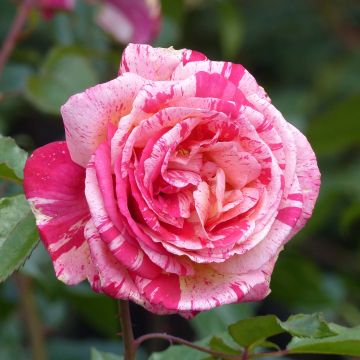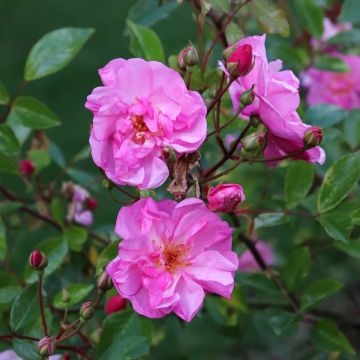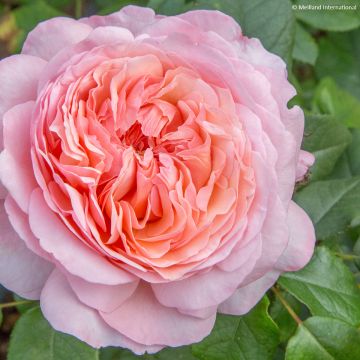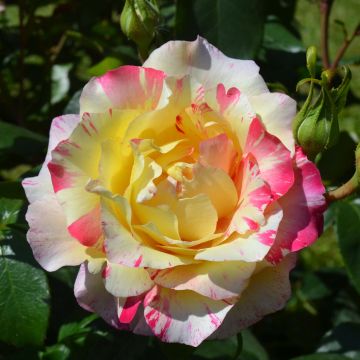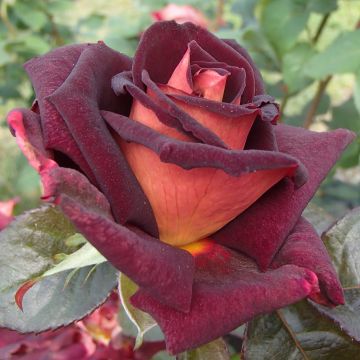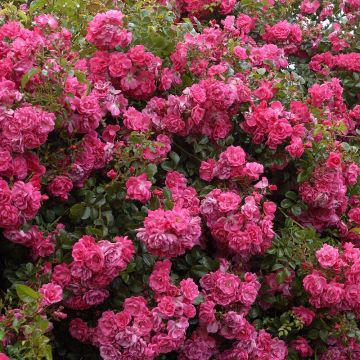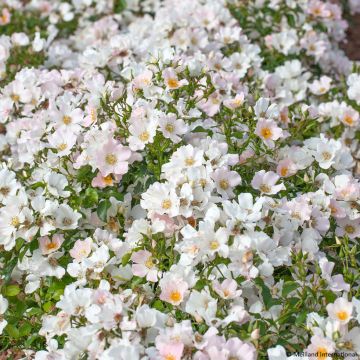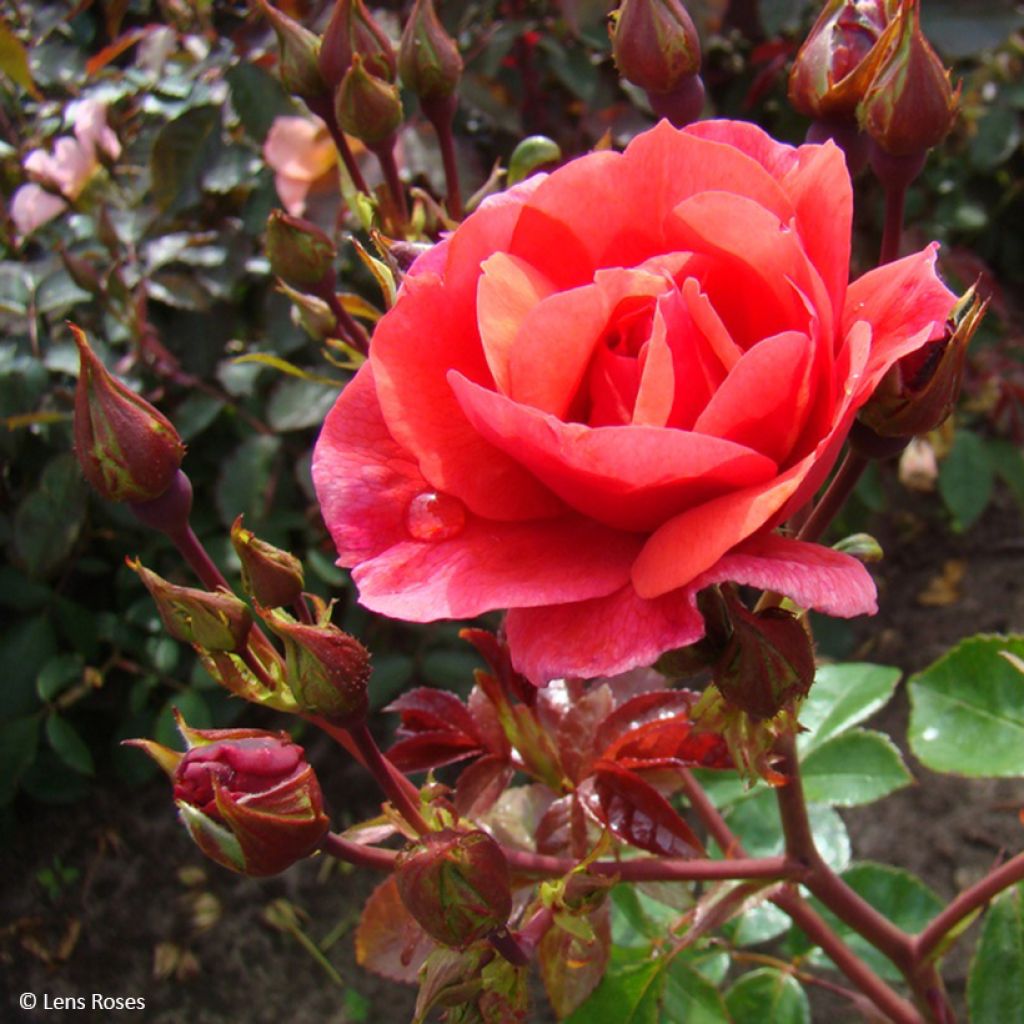

Rosa x floribunda - 'Folle Framboise' - Shrub Rose
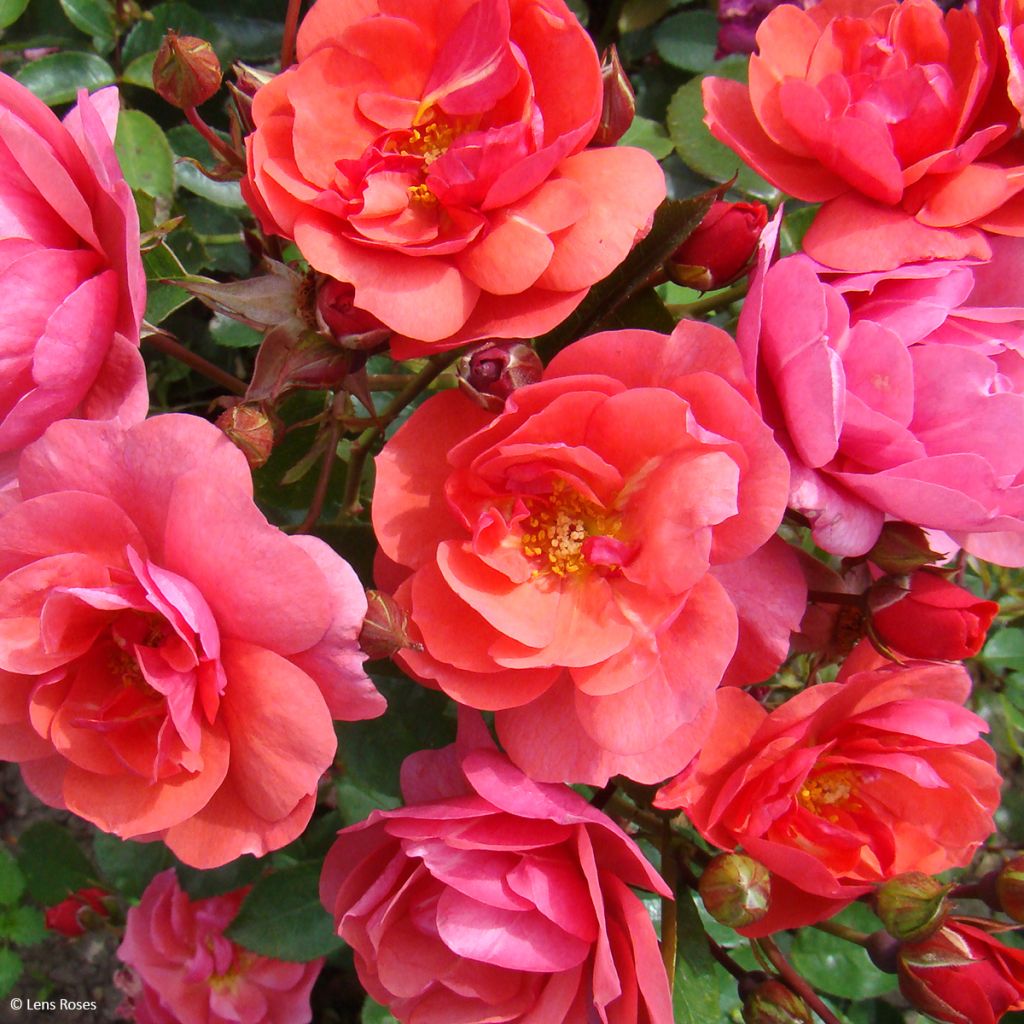

Rosa x floribunda - 'Folle Framboise' - Shrub Rose
Rosa x floribunda - 'Folle Framboise' - Shrub Rose
Rosa x floribunda Folle Framboise® 'VEL16fkate'
VEL16fkate
This item cannot be shipped to the selected country
Delivery charge from €5.90
Delivery charge from €5.90
Delivery to Corse prohibited
More information
Schedule delivery date,
and select date in basket
This plant carries a 24 months recovery warranty
More information
We guarantee the quality of our plants for a full growing cycle, and will replace at our expense any plant that fails to recover under normal climatic and planting conditions.
From €5.90 for pickup delivery and €6.90 for home delivery
Express home delivery from €8.90.
From €5.90 for pickup delivery and €6.90 for home delivery
Express home delivery from €8.90.
Delivery to Corse prohibited: UE law prohibits the import of this plant from mainland France to Corse as part of the fight against Xylella fastidiosa. Please accept our sincere apologies.
More information
Does this plant fit my garden?
Set up your Plantfit profile →
Description
The Rose 'Folle Framboise' lives up to its name with its multiple clusters of flowers, starting as a deep pink and then turning into a raspberry pink. This range of vibrant colours irresistibly captivates the eye and pleases the sense of smell with a pleasant fragrance. Throughout the summer, the double roses bloom continuously against dark foliage that serves as their backdrop. Its compactness makes it a perfect plant for borders and allows it to be grown in pots on a terrace, enhancing the space beautifully. This recent variety has proven to be resistant to diseases.
The Rose 'Folle Framboise' or 'VEL16fkate' is a superb recent creation from the Belgian nursery Lens, introduced to the market in 2020. As a major member of the Rosaceae family, the genus Rosa is rich in numerous botanical species and many horticultural hybrids classified into major categories. Folle Framboise belongs to the floribunda roses group, with flowers grouped in large corymbs at the end of young shoots.
Very compact, this rose forms a clump that reaches a height of 50 to 60 cm (20 to 24in) and an approximate spread of 50 cm (20in). It is adorned with beautiful glossy dark green foliage, divided into leaflets with an odd number and resistant to the usual rose diseases. Remaining healthy, it provides a perfect dark background to highlight the flowering.
Flowering begins in June until the first frost in October or beyond. Very floriferous, the plant forms clusters of ramified bouquets that can carry up to 25 flowers! Medium-sized, about 6 cm (2in) in diameter, these flowers are double and have about twenty petals. They form a slightly tousled cup, revealing the golden stamens in the centre of the corolla. Their colour evolves as they mature, starting with deep pink tones close to carmine red, then gradually lightening and turning into an attractive raspberry pink. These shades of colour coexist within the generous bouquets, creating a dynamic harmony that leaves no one indifferent. Folle Framboise is a favourite rose, loved for its joyful colours, pleasant and subtle fragrance, and constantly renewed flowers. The foliage also evolves, from bronze in spring to dark green at maturity, while the stems take on a lovely mahogany brown hue.
'Folle Framboise' brings a cheerfulness to the garden and can even be grown in pots on a terrace or balcony, thanks to its compact size. In the garden, it can create a low hedge or be integrated into the foreground of a mixed border. Plant low-growing perennials, such as the Sand Pink (Dianthus arenarius), with its airy fringed white flowers that bloom throughout the summer at its base. If you prefer yellow, the Greek St. John's Wort (Hypericum olympicum) will charm you with its fine and highly graphic grey-green foliage and many bright yellow flowers from May to July. In slightly moister soil, create an original foliage contrast by choosing the Ajuga Petite Parakeet, a creeping Bugle with elongated golden foliage that turns lemon green over time. In the background of Folle Framboise, plant ornamental shrubs and extend the flowering season into early spring with the Mikador Forsythia, a compact Mimosa that bursts into a profusion of yellow flowers in March.
Report an error about the product description
Plant habit
Flowering
Foliage
Botanical data
Rosa
x floribunda
Folle Framboise® 'VEL16fkate'
Rosaceae
VEL16fkate
Cultivar or hybrid
Other Polyantha clustered Roses
Planting and care
Plant the 'Folle Framboise' rose from November to March, outside periods of frost, in ordinary, well-loosened, fertilised and drained soil. Roses like clay soils, which should be heavy rather than light. If the soil is too sandy, compact or dry in summer, it is best to add potting soil, well-rotted manure or compost to the existing soil when planting. Soak the root ball in a bucket of water for a quarter of an hour before planting, then place the rose in the planting hole, fill in around it and water abundantly. Water regularly for the first year and then more sparingly to force the roots into the soil.
Position this rosebush in a sunny spot, ideally in part-shade in a warm climate. Roses are greedy plants, so a specific dose of fertiliser will be beneficial at the start of vegetation and then regularly throughout flowering. Organic fertilisers are preferable, as they are richer in potash (K in the NPK formula) than nitrogen (N).
Roses may develop unsightly spots at the end of summer, but this is a natural occurrence and doesn't harm the rose's growth.
Planting period
Intended location
Care
This item has not been reviewed yet - be the first to leave a review about it.
Roses by producer
Haven't found what you were looking for?
Hardiness is the lowest winter temperature a plant can endure without suffering serious damage or even dying. However, hardiness is affected by location (a sheltered area, such as a patio), protection (winter cover) and soil type (hardiness is improved by well-drained soil).

Photo Sharing Terms & Conditions
In order to encourage gardeners to interact and share their experiences, Promesse de fleurs offers various media enabling content to be uploaded onto its Site - in particular via the ‘Photo sharing’ module.
The User agrees to refrain from:
- Posting any content that is illegal, prejudicial, insulting, racist, inciteful to hatred, revisionist, contrary to public decency, that infringes on privacy or on the privacy rights of third parties, in particular the publicity rights of persons and goods, intellectual property rights, or the right to privacy.
- Submitting content on behalf of a third party;
- Impersonate the identity of a third party and/or publish any personal information about a third party;
In general, the User undertakes to refrain from any unethical behaviour.
All Content (in particular text, comments, files, images, photos, videos, creative works, etc.), which may be subject to property or intellectual property rights, image or other private rights, shall remain the property of the User, subject to the limited rights granted by the terms of the licence granted by Promesse de fleurs as stated below. Users are at liberty to publish or not to publish such Content on the Site, notably via the ‘Photo Sharing’ facility, and accept that this Content shall be made public and freely accessible, notably on the Internet.
Users further acknowledge, undertake to have ,and guarantee that they hold all necessary rights and permissions to publish such material on the Site, in particular with regard to the legislation in force pertaining to any privacy, property, intellectual property, image, or contractual rights, or rights of any other nature. By publishing such Content on the Site, Users acknowledge accepting full liability as publishers of the Content within the meaning of the law, and grant Promesse de fleurs, free of charge, an inclusive, worldwide licence for the said Content for the entire duration of its publication, including all reproduction, representation, up/downloading, displaying, performing, transmission, and storage rights.
Users also grant permission for their name to be linked to the Content and accept that this link may not always be made available.
By engaging in posting material, Users consent to their Content becoming automatically accessible on the Internet, in particular on other sites and/or blogs and/or web pages of the Promesse de fleurs site, including in particular social pages and the Promesse de fleurs catalogue.
Users may secure the removal of entrusted content free of charge by issuing a simple request via our contact form.
The flowering period indicated on our website applies to countries and regions located in USDA zone 8 (France, the United Kingdom, Ireland, the Netherlands, etc.)
It will vary according to where you live:
- In zones 9 to 10 (Italy, Spain, Greece, etc.), flowering will occur about 2 to 4 weeks earlier.
- In zones 6 to 7 (Germany, Poland, Slovenia, and lower mountainous regions), flowering will be delayed by 2 to 3 weeks.
- In zone 5 (Central Europe, Scandinavia), blooming will be delayed by 3 to 5 weeks.
In temperate climates, pruning of spring-flowering shrubs (forsythia, spireas, etc.) should be done just after flowering.
Pruning of summer-flowering shrubs (Indian Lilac, Perovskia, etc.) can be done in winter or spring.
In cold regions as well as with frost-sensitive plants, avoid pruning too early when severe frosts may still occur.
The planting period indicated on our website applies to countries and regions located in USDA zone 8 (France, United Kingdom, Ireland, Netherlands).
It will vary according to where you live:
- In Mediterranean zones (Marseille, Madrid, Milan, etc.), autumn and winter are the best planting periods.
- In continental zones (Strasbourg, Munich, Vienna, etc.), delay planting by 2 to 3 weeks in spring and bring it forward by 2 to 4 weeks in autumn.
- In mountainous regions (the Alps, Pyrenees, Carpathians, etc.), it is best to plant in late spring (May-June) or late summer (August-September).
The harvesting period indicated on our website applies to countries and regions in USDA zone 8 (France, England, Ireland, the Netherlands).
In colder areas (Scandinavia, Poland, Austria...) fruit and vegetable harvests are likely to be delayed by 3-4 weeks.
In warmer areas (Italy, Spain, Greece, etc.), harvesting will probably take place earlier, depending on weather conditions.
The sowing periods indicated on our website apply to countries and regions within USDA Zone 8 (France, UK, Ireland, Netherlands).
In colder areas (Scandinavia, Poland, Austria...), delay any outdoor sowing by 3-4 weeks, or sow under glass.
In warmer climes (Italy, Spain, Greece, etc.), bring outdoor sowing forward by a few weeks.

































